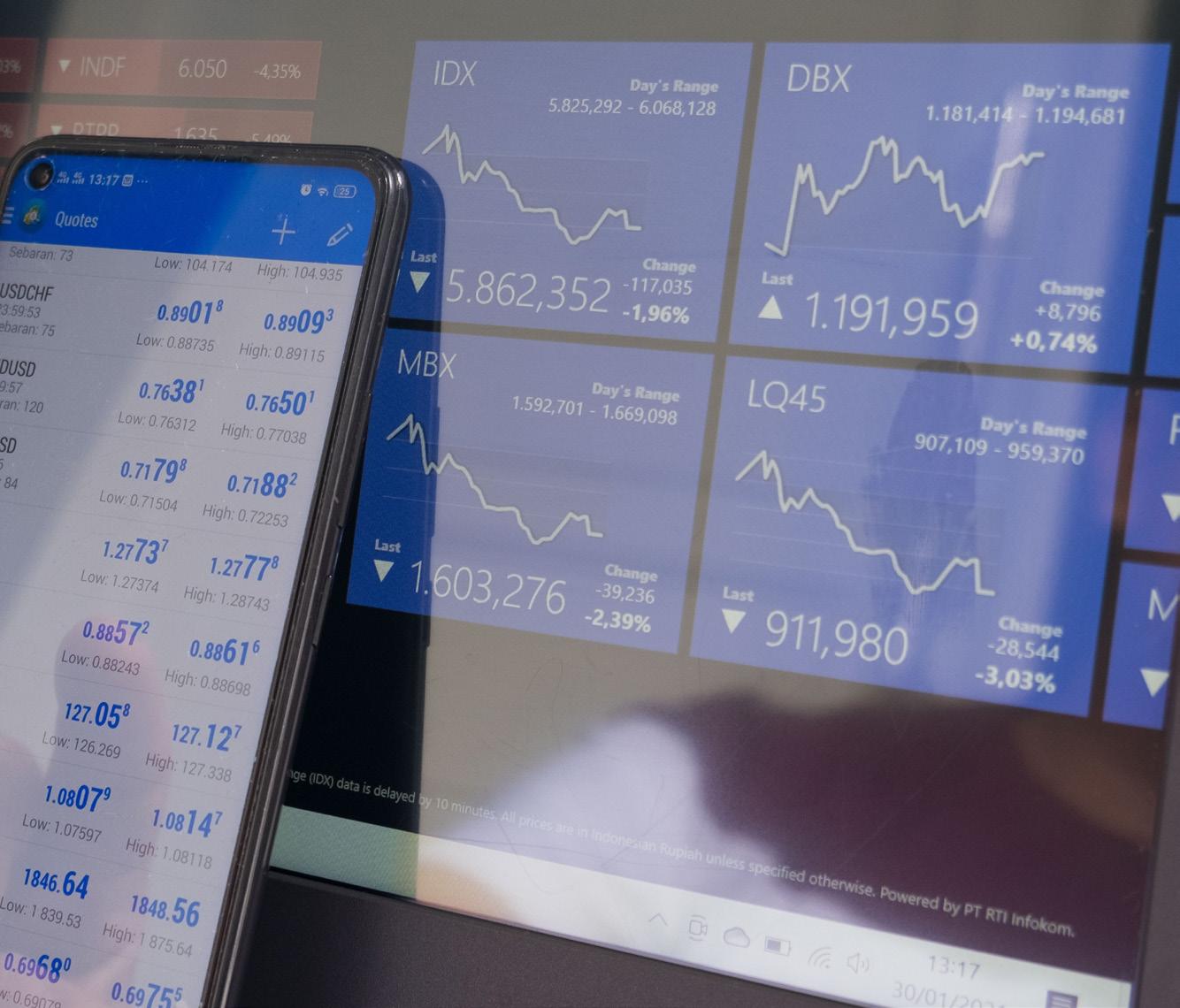
4 minute read
Making an Income From Forex – It’s Not For the Faint-Hearted
Self-described risk-taker Peter Gensch has been forex trading for more than 10 years, and loves both the challenge, and the community.
Five nights a week, Peter Gensch goes to bed at 5pm and gets up again at midnight. That way he can be ready in front of his computer when the New York Stock Exchange opens at 1.30am. For three hours, both the London and New York markets are open concurrently, and that’s when all the action happens for the serious foreign exchange (forex) trader. “Forex trading is a way to create an alternative income, but it isn’t as easy as people think because the markets can be wild,” Peter explains. “But if you know what you’re doing – if you’re sensible, stick to your principles, and do the hard work – it can create an income.”
Advertisement
From petrol station attendant to business owner
Peter arrived in New Zealand from Germany in 1989 as a 24-year-old with very little English. His first job was working at a Mobil station in Warkworth, earning just $9.50 an hour. But he was always ambitious, and quickly found a sales job selling top-quality wrought iron gates. The job sent him all over the world building relationships with clients – improving his English, his sales ability and his people skills. A few years later, in the mid-1990s, when he heard that the telecommunications (telco) sector would be deregulated, Peter decided to start his own business; he describes himself as an entrepreneur at heart. He had been using various services to access cheaper calling back to Germany, so he already had some familiarity with telco services. He moved into the telco sector, running his own call centres, setting up and selling several telco businesses over many years.
Returns of between five and 10 per cent each month
It was a telco business associate who introduced Peter to the idea of forex about 10 years ago. It’s a fast-moving, daily trading strategy, where you make money by trading pairs of currencies at the right time. A thorough and up-to-date understanding of global economics is part of the job and traders become part of a huge international community of enthusiasts. “I’m a risk taker, obviously, and I thought, ‘This seems to be easy’. I put money in and lost it straight away. Lesson learned,” he laughs. “I discovered more and did my research, and now it is a big part of my life.”

Forex differs from other types of trading because there’s no advantage to holding your buys for the longer term: “You make your money every day and I like that, because you have control of your destiny. The pairs move every day, by the minute, and there are so many pairs you can trade.”
Peter has now been a forex trader for a decade and he says it’s a volatile way to make a living, as well as a lot of hard work. He expects to make a five to 10 per cent return each month, which is achievable “if you really put your mind to it and focus and learn”. However, unexpected global events will test your mettle: “Some nights it is better not to trade due to event risk. There are days that are untradeable, in my view.”
Getting started in forex
Peter believes that anyone can have a go at forex trading, but the number one rule is to start with a demo account, and then move onto very small trades. The demo account will give you the chance to learn the technicalities of forex before you actually put your own money on the line. Peter has tried various trading platforms, but prefers locally based BlackBull Markets, which avoids the added risk of sending his money offshore, “and I like the idea that I can talk to them, or even drive to the office if I wanted to”.
He also warns of the inordinate number of scammers and scam services targeting forex traders: “It’s very unfortunate and it takes time to separate the good ones from the bad ones.” He’s tried lots of strategies that haven’t worked, like “algorithm robots, and they’re a waste of time; analysts who couldn’t be more wrong; and specialists who just made me more confused. You really can’t learn from a course. You have to learn by doing.”
Solitary, but worthwhile
Peter says the only downside is that it’s a bit solitary, so to make up for that, he still dabbles in business; he really enjoys the interaction with other people. But he wouldn’t swap forex trading for any other type of investment and he says it’s a fantastic way to create an income. “It is very fascinating,” says Peter. “Imagine it! You sit there in the middle of the night, with your two big screens, in your warm house, and you make money with just your internet connection.”








